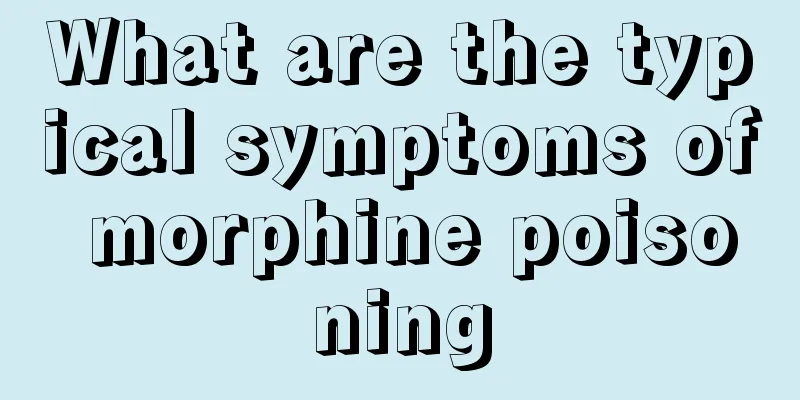What is the reason for frequent vomiting caused by brain cancer

|
Vomiting is a symptom that is familiar to all of us. Improper diet, motion sickness, pregnancy and other factors can cause vomiting. But the most serious cause is brain tumor. As we all know, vomiting is one of the three typical manifestations of intracranial hypertension symptoms of brain tumor. So, what is the reason for frequent vomiting in brain cancer? Today we will take a brief look at it. 1. Brain cancer vomiting symptoms are unique Unlike the vomiting symptoms of general gastrointestinal reactions, vomiting caused by brain tumors is more common in the early morning or after breakfast, has nothing to do with eating, and is not accompanied by gastrointestinal symptoms such as abdominal distension, nausea, abdominal pain and diarrhea. Children with brain tumors can eat immediately after vomiting, but vomit again soon after eating. Moreover, as the disease progresses, it can occur at any time, with intermittent recurrences. Such long-term recurrences can cause dehydration and malnutrition, which can be easily misdiagnosed as gastrointestinal diseases. In addition, vomiting caused by brain tumors can be jet-like. Patients usually do not feel nauseous before vomiting, but often suddenly vomit after a headache, often 0.5-1 meter away. It can also be accompanied by headaches, visual impairment, olfactory hallucinations, and a few children also have abdominal pain and other symptoms. 2. Brain cancer with vomiting as the main symptom We know that brain cancer ranks second among childhood malignant tumors after leukemia, and vomiting is the most common symptom of childhood intracranial brain cancer, with an incidence of 73% to 94%. Since most childhood brain tumors are cerebellar diseases, and cerebellar lesions often manifest as gastrointestinal symptoms, such as nausea, vomiting, or unsteady walking, we should pay more attention to cerebellar lesions in childhood brain tumors with vomiting as the main symptom. For adults, vomiting due to brain tumors can be caused by increased intracranial pressure stimulating the vomiting center, or by direct or indirect stimulation and compression of the vomiting center or vagus nerve by a tumor in the posterior cranial fossa; a tumor in the fourth ventricle can directly stimulate the vomiting center, and sometimes just turning the head can cause dizziness and vomiting, which is called Brown's sign; the incidence of brainstem tumors accounts for 2% to 5% of intracranial tumors, and some patients have vomiting as an early symptom. These are brain tumors that mainly cause vomiting, and special attention should be paid to them in disease diagnosis. Although vomiting may seem normal, its consequences can be very serious. Therefore, if we have unusual vomiting, such as vomiting that continues for several days, we need to pay attention to it because we need to be careful about brain tumors. Okay, let's get back to the point. For the same tumor, some people have obvious effects with medication, while others have little effect. This is because of individual genetic differences and different tumor gene mutations, which lead to different drug effects. Domestic tertiary hospitals generally recommend genetic testing for tumor drugs, develop medication plans with higher efficacy and lower toxicity, and find symptomatic targeted drugs. For people with a family history of tumors, the risk can be checked through tumor susceptibility gene testing, which is of great clinical significance for tumor prevention. |
<<: What should I do if I have brain cancer
>>: How to classify uterine cancer
Recommend
Why does altitude sickness occur?
Altitude sickness is caused by the gradual decrea...
Do you know what are the early symptoms of bone cancer?
"What are the early symptoms of bone cancer?...
What should I do if my liver and gallbladder meridians are blocked?
The liver and gallbladder meridians are blocked, ...
Steaming rice in a microwave oven
Steaming rice in a microwave oven is a common met...
Folk remedies for treating hemorrhoids, small remedies for treating serious diseases
Once hemorrhoids occur, the pain they bring to pa...
What causes silver chopsticks to turn black?
Nowadays, chopsticks are made of various material...
Tips on how to adjust the size of tight shoes
A journey of a thousand miles begins with a singl...
What are the symptoms of deep varicose veins?
For those who always watch TV, they must be famil...
What is the survival rate of rectal cancer
The survival rate for rectal cancer in its early ...
Purpura appears on the skin
The occurrence of purpura is not unfamiliar to ma...
The contact lenses are dry
In our lives, many people think that wearing fram...
Eating more soy milk and milk can prevent breast cancer
Some people say that soy products such as soy mil...
Why is hamartoma difficult to cure
If you have a hamartoma, you must adhere to the p...
Radical prostatectomy for stage 4 prostate cancer
Radical surgery for prostate cancer stage 4: Surg...
What are the nursing measures for laryngeal cancer
In the dry northern winter, we must ensure suffic...









